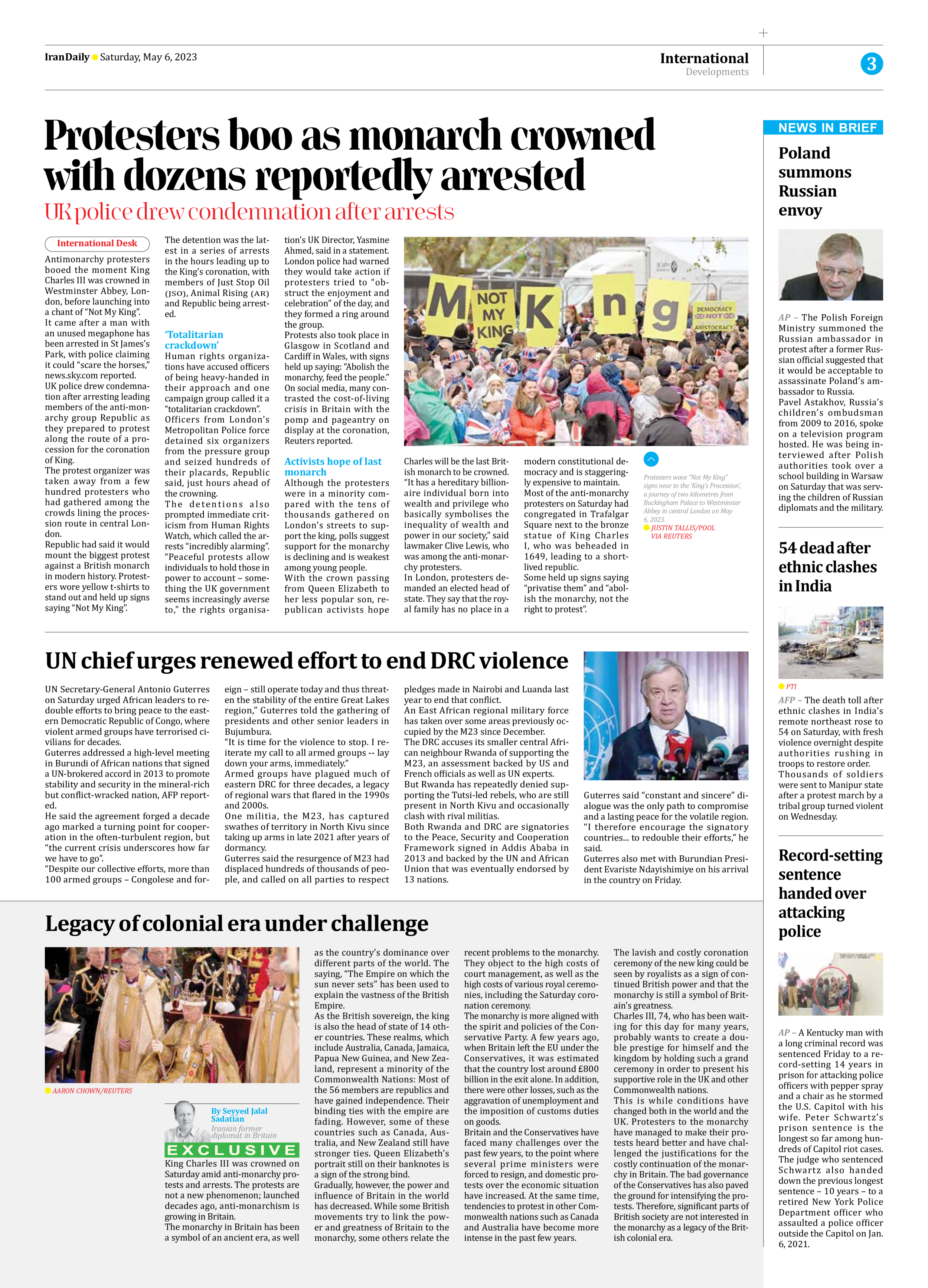
Legacy of colonial era under challenge
By Seyyed Jalal Sadatian
Iranian former diplomat in Britain
King Charles III was crowned on Saturday amid anti-monarchy protests and arrests. The protests are not a new phenomenon; launched decades ago, anti-monarchism is growing in Britain.
The monarchy in Britain has been a symbol of an ancient era, as well as the country’s dominance over different parts of the world. The saying, “The Empire on which the sun never sets” has been used to explain the vastness of the British Empire.
As the British sovereign, the king is also the head of state of 14 other countries. These realms, which include Australia, Canada, Jamaica, Papua New Guinea, and New Zealand, represent a minority of the Commonwealth Nations: Most of the 56 members are republics and have gained independence. Their binding ties with the empire are fading. However, some of these countries such as Canada, Australia, and New Zealand still have stronger ties. Queen Elizabeth’s portrait still on their banknotes is a sign of the strong bind.
Gradually, however, the power and influence of Britain in the world has decreased. While some British movements try to link the power and greatness of Britain to the monarchy, some others relate the recent problems to the monarchy. They object to the high costs of court management, as well as the high costs of various royal ceremonies, including the Saturday coronation ceremony.
The monarchy is more aligned with the spirit and policies of the Conservative Party. A few years ago, when Britain left the EU under the Conservatives, it was estimated that the country lost around £800 billion in the exit alone. In addition, there were other losses, such as the aggravation of unemployment and the imposition of customs duties on goods.
Britain and the Conservatives have faced many challenges over the past few years, to the point where several prime ministers were forced to resign, and domestic protests over the economic situation have increased. At the same time, tendencies to protest in other Commonwealth nations such as Canada and Australia have become more intense in the past few years.
The lavish and costly coronation ceremony of the new king could be seen by royalists as a sign of continued British power and that the monarchy is still a symbol of Britain’s greatness.
Charles III, 74, who has been waiting for this day for many years, probably wants to create a double prestige for himself and the kingdom by holding such a grand ceremony in order to present his supportive role in the UK and other Commonwealth nations.
This is while conditions have changed both in the world and the UK. Protesters to the monarchy have managed to make their protests heard better and have challenged the justifications for the costly continuation of the monarchy in Britain. The bad governance of the Conservatives has also paved the ground for intensifying the protests. Therefore, significant parts of British society are not interested in the monarchy as a legacy of the British colonial era.







